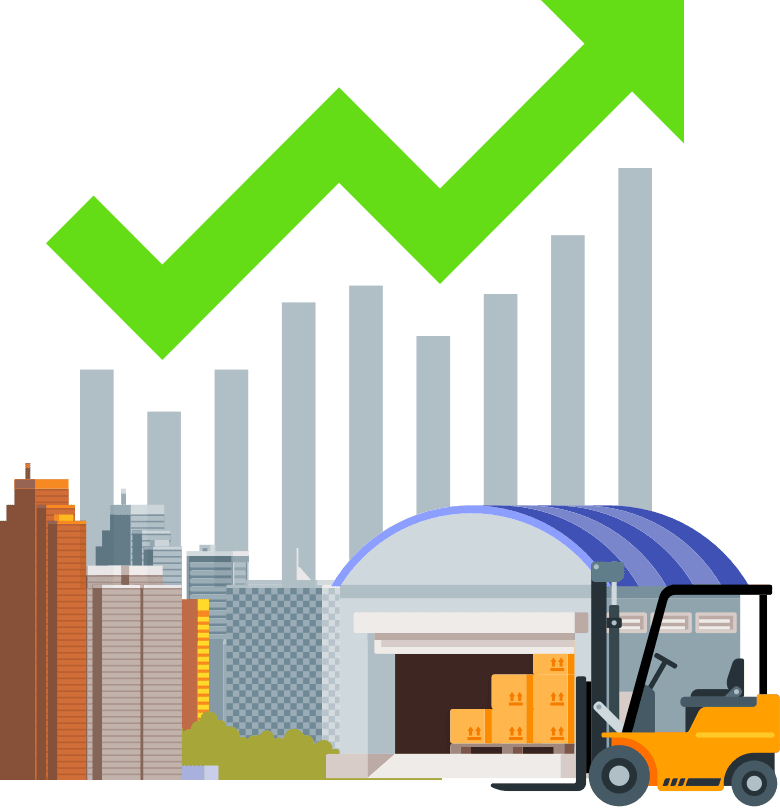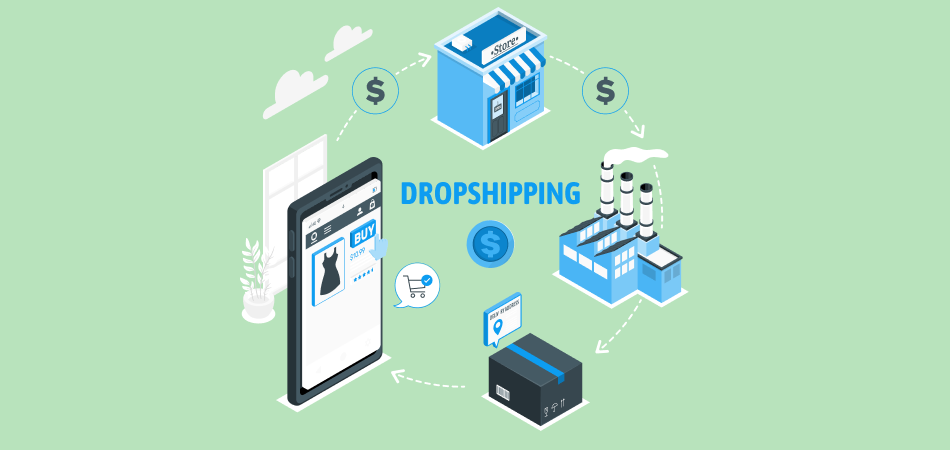How to Balance Growth with the Ethical Management of Supply Chains

Supply chains can be one of the most complex aspects of a business, with dozens, even hundreds of suppliers making up an entire network. As companies work towards social and environmental responsibility, supply chains are often overlooked, despite their enormous impacts.
However, even when businesses address the effects of their supply chain, it can be difficult to balance responsible practices with economic growth. This article explores several ways to balance both environmental and social responsibility in a supply chain with the economic growth of your business. These include promoting transparency, sourcing responsibly, focusing on demand planning, and ensuring effective planning throughout the supply chain.
Promote Transparency
The first method of increasing economic growth while also ensuring environmental and social responsibility is to increase your visibility in your supply chain.
A lot of information can get lost in the complexity of a supply network, and by opening up thorough communication and oversight, businesses can not only ensure adherence to ethical practices throughout each stage but can gain competitive advantages.

First, let’s discuss how transparency promotes ethical and environmental responsibility. Research has shown that most companies are aware of only around 7% of what is happening in their supply chain, which can make ethical or environmental violations easy to miss.
A lack of supply chain transparency can not only lead to unsafe and unfair working conditions but can also result in violation of environmental regulations. Increasing visibility in your supply chain helps you keep an eye on your suppliers and practices to make sure that they're complying with your standards or with international labor regulations.
Increased visibility also helps your business reduce costs and increase profits. Understanding what's happening when in your supply chain helps you detect areas that are not as efficient as they could be and address them. The increased visibility can also help reduce the chance of costly disruptions.
A lack of transparency can also result in recalls or scandals that hurt a brand's image or even bring about legal action. In this way, transparency is also a crucial part of economic growth, as leaving your supply chain in the dark makes you much more vulnerable to costly ethical problems in the future.
Finally, as your business grows, use transparency to ensure that growth is not coming at the expense of ethical practices. Business expansion efforts should come hand-in-hand with transparency.
Adding on new suppliers to an existing network should involve a full analysis of that supplier’s value chain to ensure safety, sustainability, and social measures are being taken.
Companies often use supply chain management software and other modes of technological support to facilitate transparency. Doing so will give companies better control over their suppliers, and will enable them to clearly define and moderate ethical practices with minimal monetary and time investments.
Many companies also use supply chain software to ensure regulatory compliance with a variety of international fair labor standards.
Source Responsiblity
Responsible sourcing from ethical and sustainable suppliers is another way to ensure responsible economic growth. Not only does responsible sourcing help you achieve ethical and environmental goals, but it can help avoid disruptions and build a dedicated customer base.
First, ensure you source from suppliers that ensure fair working conditions to avoid costly disruptions to your supply chain. Many companies assume that they're not directly responsible for the practices of their suppliers, but companies have direct control over who they source from, and by extension, the social practices and responsibilities are taken.
This may seem like a major investment of time and resources, but sourcing from ethically-responsible suppliers can have significant long-term positive impacts on business operations.

For example, poor working conditions can lead to major supply chain disruptions, as seen with the Covid-19 pandemic. Workers forced into overcrowded, structurally unsafe factories are severely susceptible to outbreaks and accidents, leading to halts in production that have significant ramifications on their supply chains.
When expanding a business, make efforts to find ethically and socially responsible suppliers. These may be more expensive than others, but by making small investments to reduce risks as much as practicable, companies can drastically improve their resilience in the face of obstacles and unforeseen disruptions.
Second, using sustainable materials can also help reduce costs. One aspect of responsible sourcing is using materials that are part of the circular economy, an economic system that reduces waste by promoting products that are produced using reusable, rather than finite, materials.
By manufacturing goods either that can be reused at the end of their lifecycle, or that are made using recycled materials, not only can businesses reduce their environmental impacts, but they often save money in the long run. For example, a business that reclaims old electronics products to reuse the precious metals within stands to reduce costs of materials sourcing over time.
Finally, responsible sourcing can also bring you more customers. Today, over 60% of young consumers consider a company’s ethics before making a purchase. Making moves towards ethical and environmental responsibility will help you gain popularity among the next generation of consumers, representing an opportunity that very few companies can afford to miss out on.
Focus on Demand Planning
Waste is a major contributor to unsustainable supply chains. Though often unseen by companies and consumers, inaccurately projected production schedules can lead to extensive amounts of waste from manufacturers. This also leads to unnecessary costs for the business.

By implementing demand planning based on historical data, companies can significantly improve the efficiency of their supply chain while simultaneously reducing waste and unnecessary resource consumption.
Waste is a primary contributor to Scope 3 emissions, which encompass a company’s indirect climate impacts throughout its value chain. By optimizing production schedules through demand planning, often performed by AI technology, companies can reduce waste by up to 65%.
This improvement works its way up the supply chain, with less resource consumption for materials, fewer emissions from transportation and distribution, and less plastic usage from packaging.
Leading companies in almost every sector are already using AI to reduce waste, and thus boost sustainability and economic goals. For example, supermarkets in the US and Europe have begun using the AI tool Wasteless to forecast retail needs to reduce food waste. Using this tool, it's estimated that around $1 billion worth of food can be saved, and revenues will increase accordingly as a result of these savings.
Despite the power of AI for demand planning, AI will be most powerful when used in combination with human leadership and teamwork. For example, humans must set priorities that can then be acted upon by machine learning.
Plan for Changes
Like any aspect of business, supply chains are fickle. As the Covid-19 pandemic proved, global disruptions can occur with little to no warning, and smaller disruptions can happen even quicker. Careful monitoring of the supply chain can help predict, prevent, and prepare for changes and disruptions while making companies more resilient to unforeseen circumstances.
Not only does monitoring help businesses prepare for changes, but it also helps them identify emerging patterns in the marketplace, potential weak points, and areas of improvement.
| Get Started Now to Grow Your Online Business with the Best AliExpress Dropshipping Tool - DSers! |
Standards of sustainability and ethical responsibility are constantly in flux, and thorough monitoring can help businesses stay up-to-date with changing criteria, and monitoring for any flaws or errors.
Monitoring helps identify flaws in production but also pinpoints faults in ethical responsibility, such as inequitable treatment of workers, irresponsible disposal of waste, and unsustainable resource harvesting. Ultimately, companies have a lot to gain from careful monitoring of all parts of their supply chain.
Finding the balance between business growth and ethical responsibility as a company is a major undertaking, but one that is entirely necessary for the changing market.
A growing number of consumers are holding businesses accountable for their environmental and social impacts, and by improving ethical initiatives along with business growth, companies can significantly improve their overall practices. As consumer demand for ethical practices continues to grow, businesses that will be successful in the future must take ethics into account in every area of their operations.













 Company
Company
 Why Choose DSers
Why Choose DSers
 Blog
Blog
 Help Center
Help Center



